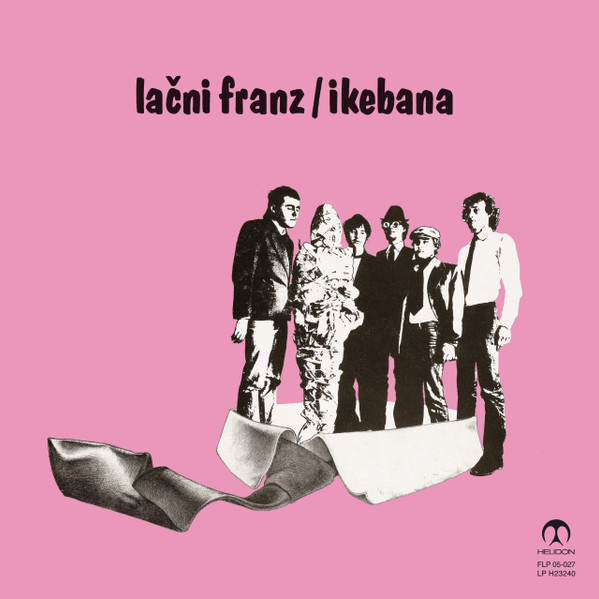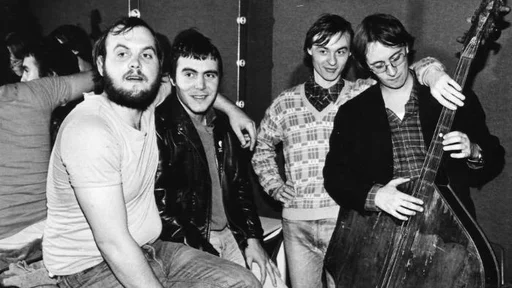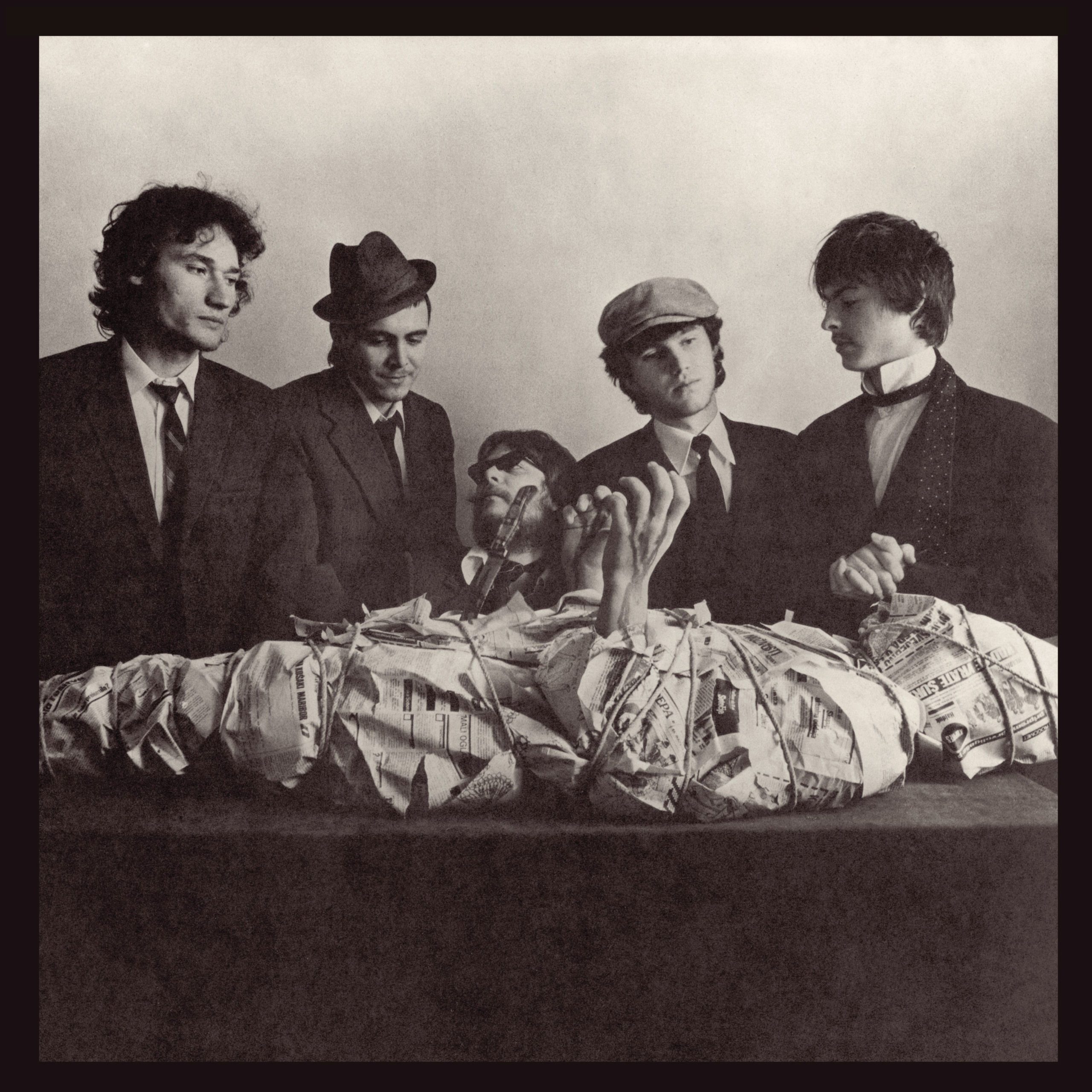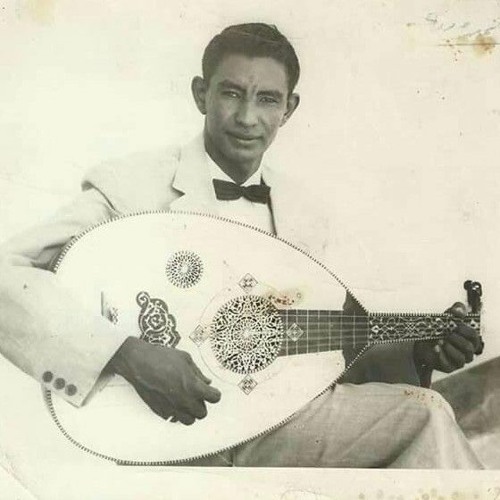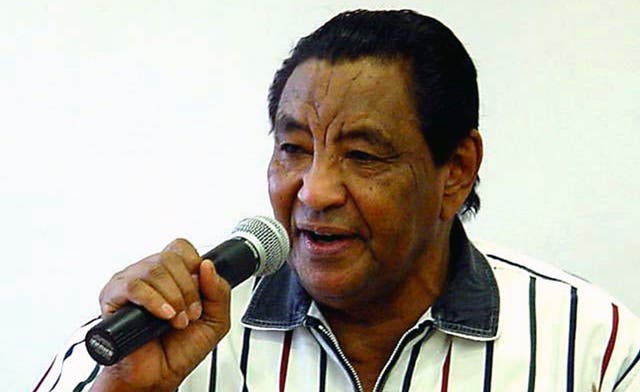Lačni Franz - 1981 - Ikebana
Lačni Franz was a Slovenian rock band, founded in 1979 in Maribor. The creative core of the five-member line-up consisted of the singer Zoran Predin and innovative guitarist Oto Rimele, who constructed the band's sound on an atypical combination of new-wave aesthetics, subtle melodic-arrangement procedures, provocative social comments and (self-)ironic poetic images.
The group's rise began in 1981 with a successful performance at the Omladinskome Festival in Subotica, and the well-received debut of Ikebana, recorded for the Helidon record company and produced by Boris Bele (from the Bulldozer band). The album contained some of their best ("Praslovan", "Stari vojak") and most unconventional ("Bog nima telefona") performances in their entire career.
The author's original uncompromisingness and impeccable musicianship marked the second (commercially less notable) achievement Adijo pamet (1982) and the next, noticeably more communicative album Ne mi dihat za ovratnik (1983). The title song brought them closer to the widest audience, and the range of influences in the first period of their career included local folk heritage, jazz passages, elements of cabaret, blues-inspired ballads and a rich experience of Anglo-American art rock and post punk. After the album Na svoji strani (1986), Rimele briefly joined the lineup of the group Laibach, and then returned to his original calling as a painter and visual artist. The singles from that stage ("Na svoji strani", "Naj ti poljub nariše ustnice", "Čuvstveno stanje mlade krave, druge največje slovenske živali") strengthened the reputation of the band, which is capable of reconciling its own artistic affinities with the desires of the middle rock current.
Although Lačni Franz maintained relatively high quality in the following years (and in a changed line-up), subsequent works (Sirene tulijo, Tiha voda) are generally considered less important in the overall discography. Zadnja večerja (1993) is their last studio work, although they performed in concert until December 1997. Predin developed a successful independent career by incorporating the standards of Lačno Franz into his own repertoire. The band reunited several times in a rejuvenated line-up (e.g. the album Svako dobro, 2016).
TRACKLIST:
A1 Bog Nima Telefona 3:27
A2 Paloma 3:16
Backing Vocals – Boris Bele
A3 PH4 2:24
A4 Žarnica 3:15
A5 Praslovan 3:53
Backing Vocals – Zoran Stjepanovič
A6 Bitles 2:58
Backing Vocals – Zoran Stjepanovič
B1 Ikebana 2:47
B2 Lačni Franz 3:34
Backing Vocals – Boris Bele, Zoran Stjepanovič
B3 Nekaj Lepljivega 2:54
Music By – Oto Rimele
B4 Šankrok 3:09
B5 Stari Vojak 3:40
Lyrics By – James Jones
B6 Ja Sam Sam 2:10
Vocals, Music By, Lyrics By – Zoran Stjepanovič
B7 Konec 0:36
Music By – Los Mačučambos
Credits:
Published by: Založba Obzorja Maribor
Studio: Studio Tivoli, Ljubljana
Pressed by: Interprogres, Zagreb
Arranged By: Lačni Fran
Bass, Accordion: Zoran Stjepanovič
Drums: Damjan Likavec
Electric Piano, Mellotron: Mirko Kosi
Guitar: Oto Rimele
Vocals, Acoustic Guitar – Zoran Predin
Lyrics By: Zoran Predin (tracce: A1 to B4, B7)
Music By: Zoran Predin (tracce: A1 to B2, B4, B5)
Design: Didie Šenekar
Photography By: Miran Podlesnik
Producer, Editor: Boris Bele
Engineer: Aco Razbornik
Editor [Editor-In-Chief]: Drago Simončič
